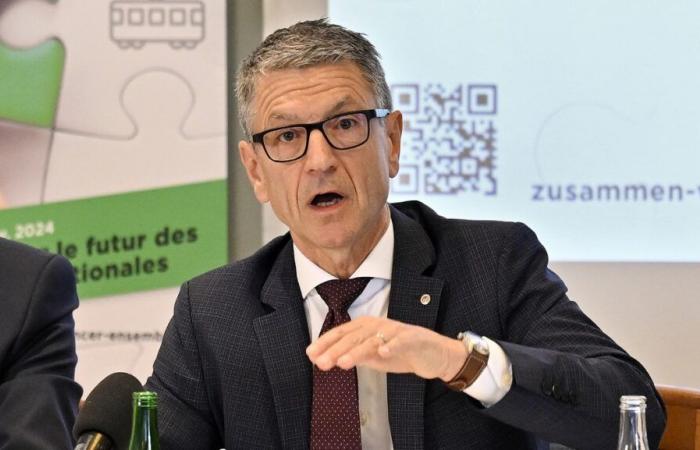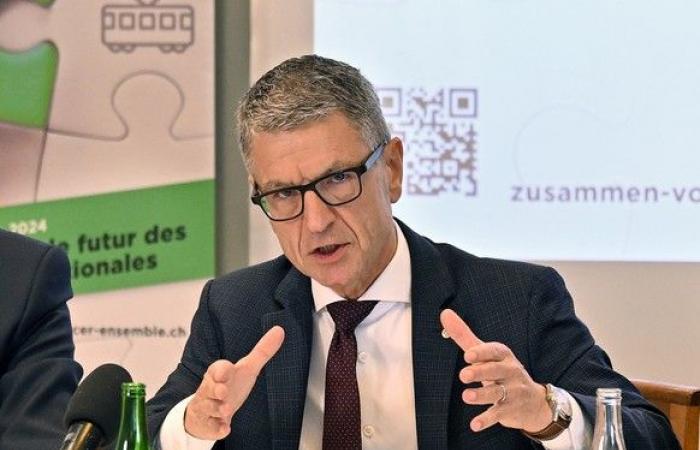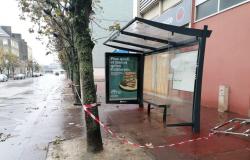Peter Goetschi, here at a press conference last July.Keystone
On Sunday, the people must vote on whether or not to widen the highways. For TCS boss Peter Goetschi, the car still has a bright future ahead of it in Switzerland. But he appeals to voters.
Benjamin Rosch / ch media
This Sunday, the people will decide: should the Confederation widen certain sections of motorways or not? If motorists are the first concerned, the boss of the Swiss Touring Club (TCS) necessarily has his say. Interview.
Polls on highway widening suggest a refusal. Has the car lost its place of choice in Switzerland?
Peter Goetschi: Very clearly, no. We can already see this through the figures. 80% of our mobility is by road, and only 16% by train. Both the car and the train are important, and in Switzerland we are fortunate to be able to rely on both modes of transport and to continually develop them.
All the information on the referendum:
And yet, we are witnessing massive resistance to the project. Did this headwind surprise you?
It was always clear that there would be resistance. But I was surprised by the intensity of the debate. This reaction unfortunately makes us forget the real issue: the adaptation of the infrastructures necessary for the evolution of our country.
“They must all be able to absorb demographic changes”
This concerns the road and the rail network, but we can also cite energy or schools. But they are not succeeding at the moment. There is also talk of a concreting of the country, but this is information which is not based on the facts. This statement is false and I find it distressing.
The left is opposed to the project, which was predictable. But polls also show skepticism among right-wing voters. Did you underestimate the resistance on that side of the political spectrum?
There is confusion in the arguments. It should be remembered that, when the highways were built, Switzerland had five million inhabitants. Today, there are nine of us, and we are increasingly mobile, whether for work or leisure. It is both the basis and a symbol of our prosperity. This targeted extension project responds to this reality. My experience is that when arguments are presented in a factual manner, they are well received.
“And the fact is: Switzerland still needs the car, today and tomorrow”
Keystone
In 2016, Doris Leuthard, then Minister of Transport, won 57% of the votes in favor of the second Gotthard road tube. What has happened since then?
At the time, the issue affected the population more, particularly because it involved road safety. And then, the debate focused on the Gotthard tunnel, a symbol of Switzerland and the Alps. However, for the widening of motorways, it is also a question of road safety, because the extension would make it possible to avoid evasive traffic which is transferred to the villages. It is precisely for this reason that I am convinced that we will get a yes on Sunday.
Would you have hoped for more support in the voting campaign? For example from the cantons concerned?
We can always do more and at all levels. However, I note that both Parliament and the cantons support these projects, as do the Swiss Farmers’ Union and economic circles. This is not surprising, because everyone uses the highway in Switzerland.
From one canton to another, the differences are strong. What interest do the Jura residents have in the widening of the A1 between Geneva and the canton of Vaud, for example?
The challenge is precisely to make this understood. Our highways are a road network that must function nationally, whether for the transport of goods or people. Switzerland is a champion in the transfer from road to rail. And yet, a large part of the transport of goods is carried out by road, particularly for the distribution sector. As a Freiburger, I too am dependent on reliable infrastructure for Geneva, Bern or Basel.
“It is for this reason that I appeal to the population: keep the overview”
Discussions are tense in Romandie, because the project concerns the A1, on the Lake Geneva region, between Geneva and Lausanne. But beyond Sarine, none concerns Zurich. Is this the reason why the German-speaking Swiss seem less concerned?
We must remember one thing: this selection was not made with a popular vote in mind, in order to ensure maximum support. These are simply the six projects that experts from the Federal Roads Office consider important and ready to be implemented to eliminate existing bottlenecks, and which were the subject of this referendum. Which is a shame, because we are neglecting an essential aspect.
Which?
Road safety. An essential subject for the TCS. The highway is a very safe and reliable mode of transportation. We must ensure this by continuing to channel traffic on the main roads and not moving it towards surrounding villages and communities. The necessary money will also be drawn from the fund for national roads and urban traffic and will not present additional costs for the Confederation.
“It’s a situation that many countries would envy”
Albert Rösti recently announced the amount of future taxation of electric cars, which should be at a level similar to that of gasoline cars. What is TCS’s position on this?
In Switzerland, it is the road users who pay for the road, that is the rule. Today, it is mainly users of vehicles with combustion engines, but it is logical that with the electrification of the vehicle fleet, the taxation system must represent this change. This is planned for 2030. In this context, it is important for the TCS that this new model is intended to compensate for decreasing revenues, and not to make margins or tend towards “tariffing of the mobility”.
Translated and adapted by Noëline Flippe and Alexandre Cudré







